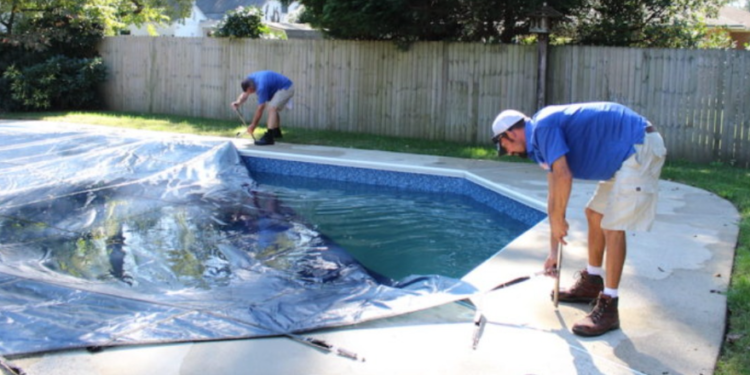Now that winter is here, congratulations if you have already closed your pool, and sorry that the beautiful warm summer is over. If you haven’t closed your swimming pool but are thinking of doing so, you have come to the right place. If you have started to get frosts and cold warnings from the weatherman, you must hurry and winterize your pool because it is all about timing. Pool Cleaning Georgia provided a guide about why you should winterize your pool in winter, especially if you live in a freezing area, and what happens if you don’t do it quickly. Buckle up, and let’s dive into the disasters and damages given by pool closing services that can escalate if you leave the pool open all winter.
Why Should I Close My Swimming Pool in Winter?
It could fall apart if you don’t close your pool in winter. It might sound disturbing to you, but that is a fact. Not closing the pool will result in ongoing catastrophic issues and problems. Let’s see why it is essential to close your pool in winter and what can happen if you don’t.
- Pipe Damage
The two most significant steps to winterize your pool are to reduce the water level beneath the skimmer lines and to blow out the water from all the pipes using pumps and filters. If you don’t clear all the water from the pipes, the water will freeze inside it. If you have studied physics, you’d know that water expands when it freezes. The frozen water will put a lot of pressure on the skimmers and pipes and cause them to burst and get damaged. The water will freeze in less than two hours if you have an above-ground pool. Pool Closing services advise that you remove all the water from the pipes to prevent them from getting damaged.
- Pump Damage
Taking care of pool pipes when you close your pool is in your best interest because they are expensive. However, if your connectors and PVC pipes are damaged, frozen, and broken, replacing them would be easy but replacing the whole pump is another story. It’s important to winterize your pool pump by removing the pipe plugs from their connecting points.
- Heater Damage
Polymer heaters and cast iron are the first things that can freeze, snap and get damaged in extreme cold, so don’t think your heater is stronger for a second. A sudden heater freeze is not a bad thing because it drains and prevents it from further damage. Remove your pool heater’s rear header and front drain plugs during swimming pool closing and detach the pressure switch inside the heater. After disconnecting everything, you must blow out the heater pipes and ensure no water is left in them.
- Filter Damage
Although your pool filter tank can endure immense pressure, almost up to 50 psi, this pressure is nothing in front of the pressure of expanding ice. When there is water left in the tank, it will freeze in cold temperatures, and the tank can also crack. If not the tank, then its DE filters and clamp rings can split in half, or the valve can get separated from the tank, or it will start to leak. Removing the filter drain plug by opening an air bleeder is necessary for seasonal pool closing.
- Deck Damage
Imagine you discovered a leaking pipe inside your pool deck. Your pool will get ruined, and the next spring you’ll re-open it, the pool will get messy. Incorrect pool closing will be a headache for you in the spring. If you have an above-ground pool, fixing the deck pipes is not much difficult, but to fix underground pipes, you’d have to cut through stone decks and think concrete which is quite challenging, and you can’t do it without the help of pool closing services experts.
- Pool Walls and Structure Damage
Some people with an above-ground pool don’t close it properly and use an air pillow to winterize the skimmer. Remember that your above-ground pool will crumble like a tin can if you do it. Above-ground pools are made in such a way that they can contain the water inside, but when it turns to ice, it expands and thickens the sheet across the swimming pool. Trying to lift, shift, tilt or slip the ice sheet can create havoc for you.
Are you still deciding to leave the pool open for winter?
If you don’t want to winterize the pool, you must use skimmer plugs and air pillows to protect the swimming pool. If you have an inground pool, you can get pool covers and plugs to protect it. You must also add pool antifreeze to your pool. Leaving the pool open has many disadvantages, so it is highly recommended to close the pool if you care about your investment. Swimming pool closing is necessary no matter the circumstances. You don’t want these damages and expenses on your hands.
Also read know about fabsswing
















